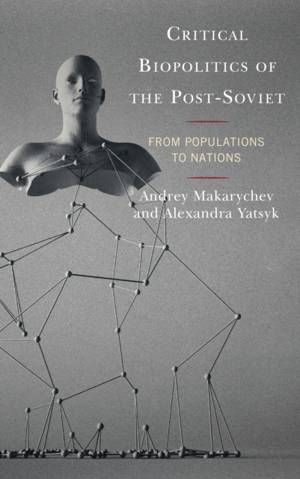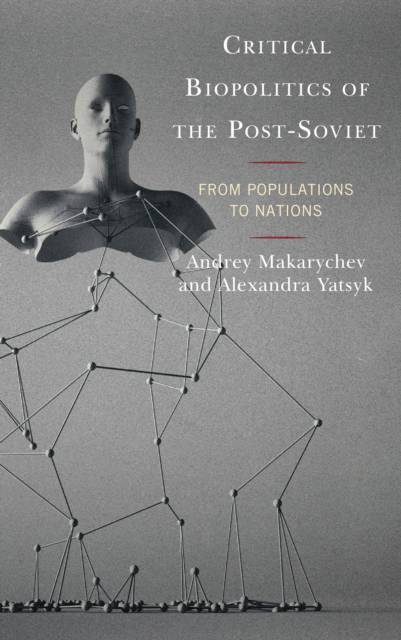
Door een staking bij bpost kan je online bestelling op dit moment iets langer onderweg zijn dan voorzien. Dringend iets nodig? Onze winkels ontvangen jou met open armen!
- Afhalen na 1 uur in een winkel met voorraad
- Gratis thuislevering in België vanaf € 30
- Ruim aanbod met 7 miljoen producten
Door een staking bij bpost kan je online bestelling op dit moment iets langer onderweg zijn dan voorzien. Dringend iets nodig? Onze winkels ontvangen jou met open armen!
- Afhalen na 1 uur in een winkel met voorraad
- Gratis thuislevering in België vanaf € 30
- Ruim aanbod met 7 miljoen producten
Zoeken
Critical Biopolitics of the Post-Soviet
From Populations to Nations
Andrey Makarychev, Alexandra Yatsyk
Hardcover | Engels
€ 198,45
+ 396 punten
Omschrijving
This book is a critical attempt to cast a biopolitical gaze at the process of subjectification of Russia, Ukraine, Georgia, and Estonia in terms of multiple and overlapping regimes of belonging, performativity, and (de)bordering. The authors strive to go beyond the traditional understandings of biopolitics as a set of policies corresponding to the management and regulation of (pre)existing populations. In their opinion, biopolitics might be part of nation building, a force that produces collective political identities grounded in the acceptance of sets of corporeal practices of control over human bodies and their physical existence. For the authors, to look critically at this biopolitical gaze on the realm of the post-Soviet means also to rethink the correlation between the biopolitical vision of the post-Soviet and the biopolitical epistemology on the post-Soviet, which would demand a new vocabulary. The critical biopolitics might be one of these vocabularies, which would fulfill this request.
Specificaties
Betrokkenen
- Auteur(s):
- Uitgeverij:
Inhoud
- Aantal bladzijden:
- 216
- Taal:
- Engels
Eigenschappen
- Productcode (EAN):
- 9781498562393
- Verschijningsdatum:
- 29/11/2019
- Uitvoering:
- Hardcover
- Formaat:
- Genaaid
- Afmetingen:
- 152 mm x 229 mm
- Gewicht:
- 489 g

Alleen bij Standaard Boekhandel
+ 396 punten op je klantenkaart van Standaard Boekhandel
Beoordelingen
We publiceren alleen reviews die voldoen aan de voorwaarden voor reviews. Bekijk onze voorwaarden voor reviews.











